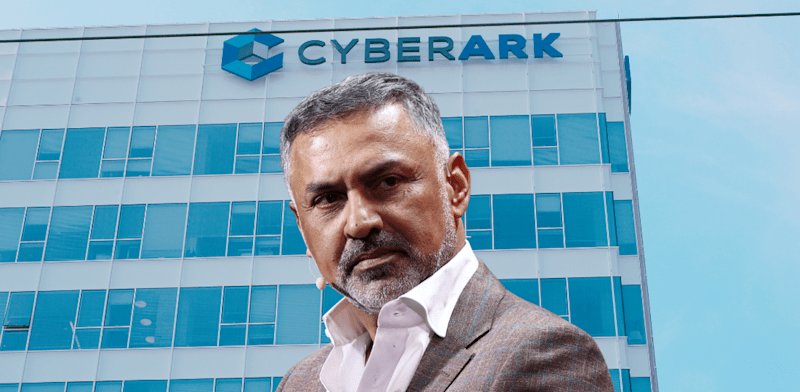Hello and welcome to Eye on AI. In this edition…OpenAI wins a $200 million Pentagon contract…Salesforce finds AI models can’t use CRM software very well…and a new study shows how AI scrapers are overwhelming cultural institutions.
Back in April, Microsoft published some research about the modern workday, drawn from data it gathers anonymously about the use of its software applications. And honestly, the conclusions were kind of depressing. It found that we are all trapped in what the company is calling “the infinite workday.”
People start checking their emails before they even get out of bed. Then, when we are at work, the most productive hours of the day are filled with meetings and distractions. During core working hours, people are getting interrupted by messages or emails every two minutes on average—that’s 275 interruptions per day—Microsoft found. Nearly half of all meetings take place between 9 a.m. and 11 a.m. or between 1 p.m. and 3 p.m., which is exactly when neuroscientists say that most people’s brains are at their best for focused work and problem-solving. In fact, most people’s productive potential peaks at 11 a.m. but that’s exactly the most overloaded hour of the day, with chat traffic hitting its highest volume on average, as well as meetings and app usage spiking.
Things don’t get better in the evenings, either. For many employees, work peaks again after dinner. With teams working across time zones, the number of meetings taking place after 8 p.m. was up 16% year over year, according to Microsoft. Many people are still checking those emails as they crawl back into bed at 10 p.m.
This exhausting schedule has helped produce what Microsoft calls a “capacity gap”—53% of leaders say productivity must increase, but 80% of workers say they lack the time or energy to do their jobs.
So what’s AI got to do with this? Well, everyone is hoping that AI will save us from this perfect storm of impossible expectations meeting human limitations. But the technology itself won’t do this. In fact, a lot of the ways companies are deploying AI and people are using the technology could make things worse.
Forcing people to work faster, not better
Think about it. If you’re already drowning in meetings, emails, and constant interruptions, having AI help you write more emails and summarize more meetings isn’t really solving the problem—it’s just greasing the wheels of a dysfunctional system.
That was the main takeaway from my conversation last week with Jamie Teevan, Microsoft’s chief scientist and technical fellow, and Alexia Cambon, one of the lead researchers on Microsoft’s Work Trends Index.
“AI is delivering real productivity gains, but it’s not enough,” Teevan tells me. “The speed of business is still outpacing the way we work today.”
She says that crafting prompts for AI to perform tasks for us, such as conducting research or generating a business presentation, “actually increases our metacognitive burden.” In other words, to write a good prompt, a person has to think clearly about the steps they want the AI to perform, and provide a list of dos and don’ts. This thinking process necessitates concentration, and it also requires someone to transform things they know tacitly into explicit instructions. Having to do this, “can feel overwhelming,” Teevan says.
But there are better ways to work with AI that can alleviate this burden—or at least share it. AI itself can be used to help craft prompts, for instance, Teevan says. Cambon says that too many people are viewing AI as just another software tool. It’s better, she says, to think about it like a digital colleague—something to which you can assign entire tasks or processes.
More importantly, to get the most out of AI, companies need to change their organizational structures, the way their employees work, and also how they measure value. Microsoft has identified companies they call “Frontier Firms” that are doing this. At these organizations, 71% of workers say their company is thriving, compared to just 37% globally.
Now, it should be said, there are not too many of these Frontier Firms out there. Out of 31,000 companies Microsoft looked at, only 840 met the criteria. Most of these companies were in tech—many of them so-called “AI native” startups that have the benefit of being able to design their processes around AI from the start. “They don’t have to unlearn a whole load of stuff,” Cambon says. But interestingly, she says that some of the Frontier Firms were in professional services, like consulting, accounting, and law, which is an area where AI is rapidly disrupting traditional work processes and even challenging entire business models.
For non-AI native companies, getting the full benefits of AI means changing organizational management and structures. “It is about how do you externalize knowledge and make things available for AI to learn from,” Teevan says. “It is about creating feedback loops and being very intentional about the content we create for our teams.”
What ‘Frontier Firms’ are doing differently
Microsoft’s research suggests there are some key changes that differentiate the Frontier Firms from the rest. They prioritize impact over activity, focusing on the 20% of tasks that create 80% of a business’s value. They redesign workflows instead of just trying to automate them. (Rather than have AI write status reports, for instance, ask whether you need status reports in the first place.) And they increasingly use AI as agents that can handle entire workflows, not just individual tasks. In this world, employees become “agent bosses,” Microsoft says.
Cambon says that the Frontier Firms also tend to have much flatter organizational structures, where teams are organized around completing a specific project, not around areas of expertise. Does Microsoft have an interest in selling this narrative in order to convince companies to buy its AI software and cloud services? Sure it does. But that doesn’t mean it’s wrong. It is clear that the companies that get this right will have a big advantage. And the ones that don’t? They’ll just have increasingly efficient chaos and burnt out employees.
With that, here’s the rest of today’s AI news.
Jeremy [email protected]@jeremyakahnWant to know more about how to use AI to transform your business? Interested in what AI will mean for the fate of companies, and countries? Why not join me in Singapore on July 22 and 23 for Fortune Brainstorm AI Singapore. We will dive deep into the latest on AI agents, examine the data center build out in Asia, and talk to top leaders from government, board rooms, and academia in the region and beyond. You can apply to attend here.
Introducing Fortune AIQ
AI is reshaping work. What does it mean for your team? Fortune has unveiled a new hub, Fortune AIQ, dedicated to navigating AI’s real-world impact. Fortune has interviewed and surveyed the companies at the front lines of the AI revolution. In the coming months, we’ll roll out playbooks based on their learnings to help you get the most out of AI—and turn AI into AIQ. The first AIQ playbook, The “people” aspect of AI, explores various aspects of how mastering the “human” element of an AI deployment is just as important as the technical details.
Companies are overhauling their hiring processes to screen candidates for AI skills—and attitudes. Read more
‘AI fatigue’ is settling in as companies’ proofs of concept increasingly fail. Here’s how to prevent it. Read more
AI is changing how employees train—and starting to reduce how much training they need. Read more
AI is helping blue-collar workers do more with less as labor shortages are projected to worsen. Read more
Everyone’s using AI at work. Here’s how companies can keep data safe. Read more
AI IN THE NEWS
OpenAI wins $200 million Pentagon contract. Under the contract, the first major Defense Department contract OpenAI has won, the AI company will build prototype “frontier AI” tools aimed at enhancing both military operations and administrative functions within the Pentagon. The tools are supposed to be up and running by the summer of 2026. OpenAI has also announced a new “OpenAI for Government” initiative to centralize its efforts to sell AI products to the government. You can read more here from CNBC.
OpenAI and Microsoft tensions reach a boiling point. That’s according to a story in the Wall Street Journal, which cites unnamed sources familiar with the dispute. OpenAI, according to the newspaper, is seeking more freedom to work with other cloud providers and sell technology that competes directly with Microsoft’s products. It also doesn’t want to share the technology from its $3 billion acquisition of AI startup Windsurf with Microsoft, the newspaper said. In addition, according to the paper’s sources, OpenAI is frustrated that Microsoft has held up its plans to convert its complicated corporate structure into a new public benefit corporation, with the tech giant, which has invested at least $13 billion in OpenAI, refusing to agree on how much equity it should hold in the new company. OpenAI, the paper reported, has even considered filing a federal antitrust complaint against Microsoft and embarking on a public campaign accusing its erstwhile partner of anticompetitive behavior.
Google releases new hurricane forecasting tool. Google DeepMind and Google Research have partnered with the U.S. National Weather Service’s National Hurricane Center to create an interactive website called Weather Lab that features an AI model the tech company developed for predicting the track of tropical cyclones (i.e. hurricanes). According to Google DeepMind’s blog on the initiative, the AI-model can accurately forecast a storm’s formation, intensity, size, shape and track up to 15 days in advance, and is as accurate or more accurate than traditional weather models based on simulating complicated physics. The AI model’s five-day cyclone track predictions were on average 87 miles closer to the actual storm locations than leading physics-based models. The Weather Lab site, which Google emphasizes is just an experiment and should not be relied on for forecasts, lets users see both AI and physics-based forecasts and see how both change under different scenarios.
EYE ON AI RESEARCH
Salesforce AI researchers find leading AI models are not so good at using Salesforce. The researchers released a new benchmark, called CRMArena-Pro, that evaluates how well AI models can perform 19 different customer relationship management tasks using Salesforce software. The tasks include configuring a product, assigning the best human sales agent to deal with a particular lead or service case, and quoting prices for different kinds of products—in scenarios involving both business-to-business interactions as well as interactions with an individual customer. The benchmark also included tasks requiring multiple back and forth interactions with customers (what are known as multiturn tasks).
For single turn interactions, Google’s Gemini 2.5 Pro performed the best, completing 54% of B2B tasks and 58% of B2C tasks. (The model was especially good at completing simple workflows, accurately finishing 83% of these B2B workflows and 90% of B2C ones.) But when it came to multiturn tasks, the performance of all the models dropped dramatically. Here Gemini 2.5 Pro managed to complete just 35% of B2B and 30% of B2C tasks (OpenAI’s o1 was ever so slightly better on multiturn B2C tasks, at 30.4%).
The research shows that even the most capable AI models have a long way to go before they can complete many real world business tasks reliably. Interestingly, Salesforce did not test any of its own “Agentforce” AI agents on the CRMArena. I wonder how they would have stacked up? You can read the research paper here on arxiv.org.
FORTUNE ON AI
Canva’s co-founder is looking to hire ‘AI natives’ and university dropouts to train the rest of the company on the tech —by Beatrice NolanOpenAI plans to continue working with Scale AI despite rival Meta’s $14.3 billion deal with the company, OpenAI’s CFO says —by Beatrice NolanExclusive: Easy-to-deploy industrial robot startup emerges from stealth with $8.5 million in seed funding —by Jeremy KahnCognizant executive weighs in on how AI will shift company culture —by Emma Burleigh
AI CALENDAR
July 8-11: AI for Good Global Summit, Geneva
July 13-19: International Conference on Machine Learning (ICML), Vancouver
July 22-23: Fortune Brainstorm AI Singapore. Apply to attend here.
July 26-28: World Artificial Intelligence Conference (WAIC), Shanghai.
Sept. 8-10: Fortune Brainstorm Tech, Park City, Utah. Apply to attend here.
Oct. 6-10: World AI Week, Amsterdam
Dec. 2-7: NeurIPS, San Diego
Dec. 8-9: Fortune Brainstorm AI San Francisco. Apply to attend here.
BRAIN FOOD
AI ‘scrapers’ are causing chaos for cultural institutions. That’s according to an article in tech publication 404 Media that is based on research by the GLAM-E Lab, a joint initiative between the Centre for Science, Culture and Law at the University of Exeter, in England, and the Engelberg Center on Innovation Law & Policy at New York University.
The GLAM-E Lab survey found that AI bots scraping the internet for training data and to help AI models respond to queries that call for up-to-date information are overwhelming the servers of libraries, archives, museums, and galleries, sometimes knocking their collections completely offline. Out of 43 cultural institutions surveyed, 39 experienced recent traffic increases, with 27 attributing this directly to AI training bots. In some cases, the traffic spikes have been similar to a denial-of-service (DDoS) attack.
These institutions often have very small IT teams and limited resources to combat the problem, making them particularly vulnerable to being overwhelmed by bot traffic. Many AI scraping bots are ignoring robots.txt files, which are supposed to tell automated tools not to scrape websites, breaking established internet norms, 404 Media reported. The problem forces institutions to choose between implementing access barriers that could reduce human usage or leaving their valuable public resources vulnerable to being knocked offline by aggressive bot scraping.























